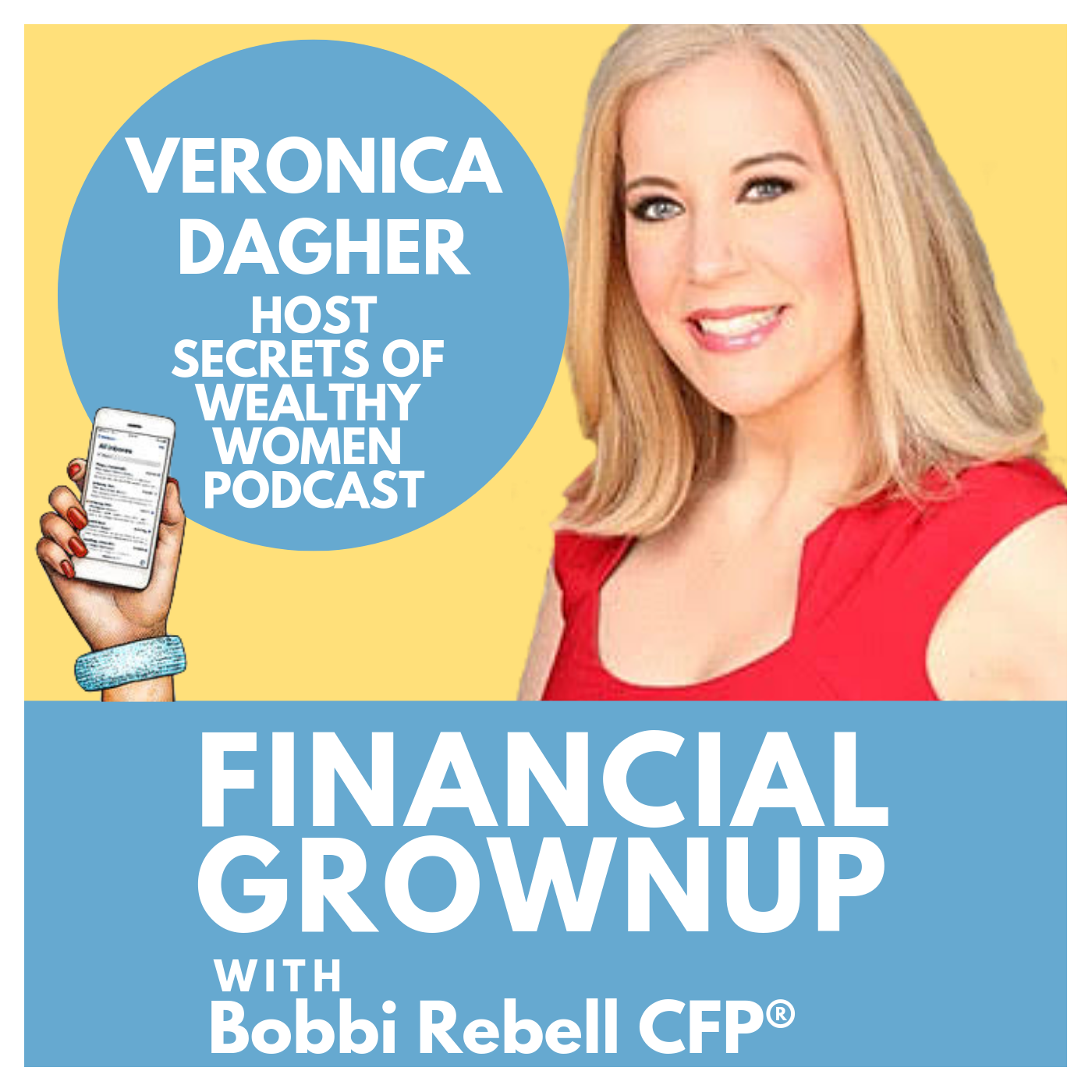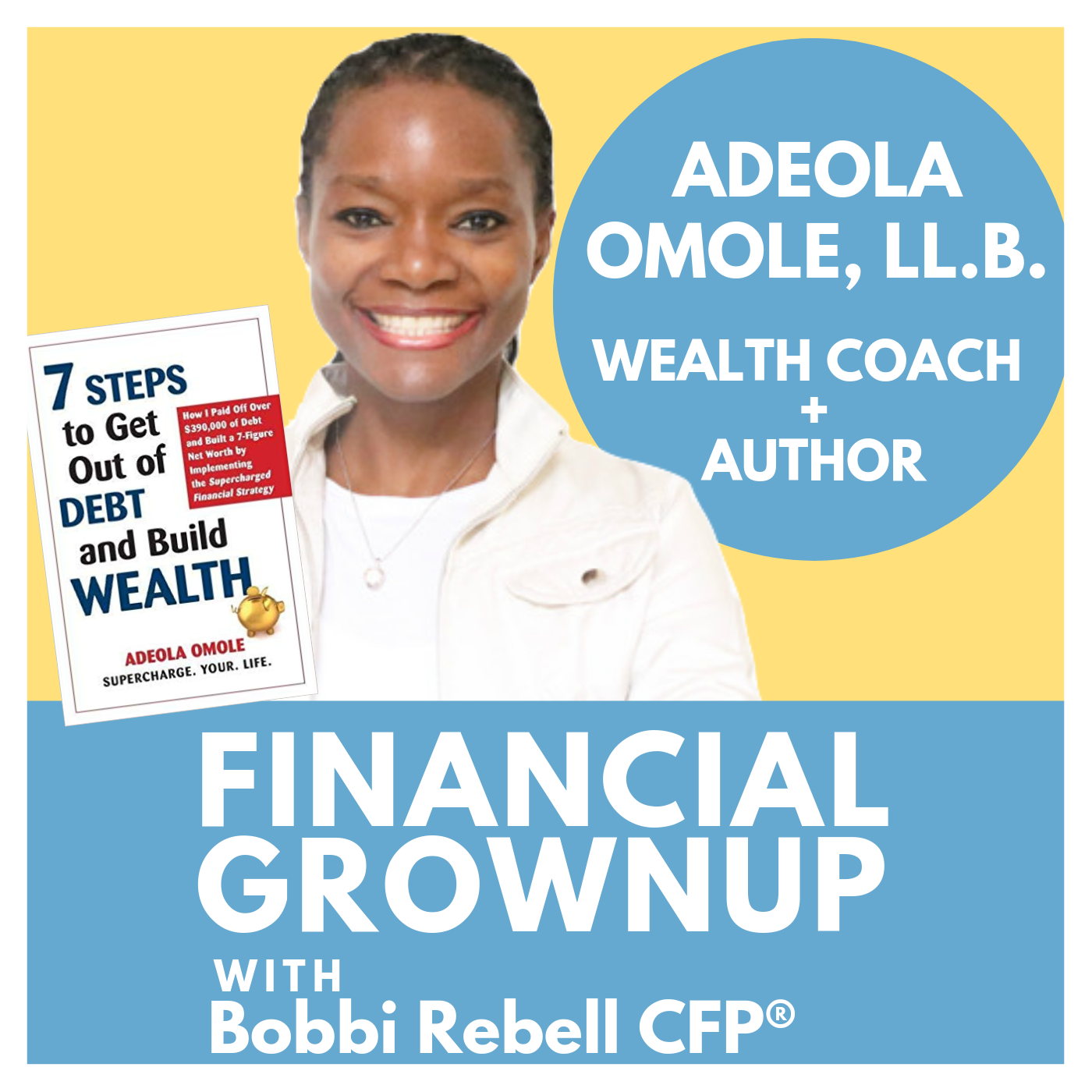Author and workplace strategist Lindsey Pollack shares a negotiation story with a big twist and a surprise ending. Plus how we often fail ourselves in negotiations by not using simple techniques when putting together deals, and how we can learn to up our game.
In Lindsey's money story you will learn:
So my money story goes back to before I wrote all those books and had the lovely credentials that you shared. About 10 years ago, I was speaking on college campuses to students about getting jobs and I really wanted to elevate my business to the next level. And so I wanted to connect with a large brand that would help me raise my image and get into the corporate market.
And through a connection of a connection of a connection, I ended up having the opportunity to pitch a major social network. And my pitch to them was that I wanted to run a series of webinars to campus career centers to teach them how to use this social network and get their students to use it for their career success. You can probably guess which network it was.
And I had no platform. I had no reputation. I had nothing to offer. And so what I did -
Let me just ask you, how had you even been connected to them?
I was so set on a couple of different companies wanting to work with that I asked everyone that I knew, "Hey, do you know anyone at this company?" And it took one full year, Bobbi and finally, a friend of a friend worked out in Silicon Valley and said, "I know someone there, I'm willing to make an introduction." So I asked until I finally got a yes.
So you had already invested quite a bit of time and energy in this and a lot of tenacity. Okay. So now you get your moment, keep going.
Okay. So I got my moment and I wrote up a huge fancy proposal that I was really proud of and I thought, "How am I going to price this?" They don't know me. I did not want to do it for free. And so what I did, was I came up with two tiers. I came up with the tier that was a very, very low investment for this company to pay me to start this webinar and run it.
And then I came up with a really, really high number and said, "If I can train 5000 people in two months. If 5000 people signed up to take this webinar in two months, you'll pay me this number." And they agreed to it because they basically had nothing to lose because the first number was really small.
Well I mean you've transferred all of the risk. You're taking on all the risk if the project were to not go well. They basically don't have much at stake. The payment from them would be so small. But of course, you are getting huge reward if it goes well which of course I know it does. But keep going.
It went well. I did everything humanly possible to get 5000 people to sign up for those webinars. And I do want to give credit that I had a very warm introduction. So I think that network and connection really helped. But I worked like crazy to get those people to sign up. I made the number. And the best part of the story is that I continued to work with that company for six more years. So I think by proving myself at the beginning, I was able to start the relationship off right and it truly was a game-changer for my business.
In Lindsey’s money lesson you will learn:
I think there are two lessons. One is to be really clear on what you want and if you get the introduction you want or if you get the opportunity you want, how are you going to turn it into something big. I think a lot of people say they want success or they want to write a book or they want to get their script produced. But once you have the opportunity in front of you, what are you going to do to make sure that you get a yes. And I can't say I knew at the time that this would be such a lesson but it was so empowering to know that I was willing to put everything on the table and work tenaciously, as you said, to get it. So know what you want and really think about how you can get the other side to say yes. Even if it means that you have to put some risk on the table.
You also mentioned the term a warm introduction. Can you talk more about how that came about, how that comes about, how people can get that more, and the importance of the kind introduction that you get? The nuance there.
Absolutely. And Bobbi, you are such a good practitioner of this generously making introductions for people you know and trust. I think that it's really easy to connect with someone today, whether it's on a social network, whether it's sending an email, finding somebody's phone number. That's easy. What's harder is standing out from the crowd. And I think the way to do that is when you have a person, a human being, who knows and trusts you who always knows and is trusted by the person you want to meet.
So I don't think it was just me and my proposal that got that company to say yes. I think it was the fact that someone who they trusted and vouched for me was able to make that introduction. You know we live in a world of a lot of connections but that true trusted connection, I think is more valuable than ever. That to me is a warm connection.
In Lindsey's everyday money tip you will learn:
I am laughing that my money story is about how great of a negotiator I am because it took me so long to learn how to improve my negotiation skills and my best negotiation tip is silence.
So why? We let there be a moment of silence there so everyone could think about that.
Silence is really uncomfortable. And I'm so glad you let that moment linger because it shows how much anyone wants to desperately make that silence go away. And so what I used to do, when I first started out as a speaker or as an author, was say something like, "Bobbi, the price of my speech is $1000." And if there was a nanosecond of silence, I would say, "But if you only want to pay 750 that's okay." Because I was so uncomfortable with the silence.
So letting a number sit there. Asking somebody, even if you're on the phone with your mobile phone provider saying, "Is that the best you can do? Can you offer me a different rate?" We jump in too quickly and say, "Or not, that's okay. Forget it." Letting that silence linger is so hard and has been a huge challenge for me but it is my best money tip to not talk myself down or lose an opportunity to get a better price because I'm not willing to sit with silence.
Can you recall any time that was super effective using that technique? Can you give us an example?
Oh, everyday when I'm negotiating for my business. As I've gotten more successful as a speaker, I've raised my prices. And probably the hardest one to do is to raise a price on an existing valued client. But over time, it's really a necessity to grow your business.
I had to say to someone just the other day, "I've raised my prices by 15%. I know that we've always been at X number. The new number is this." And I so wanted to say, "But if you don't want to pay that's okay." Or, "I know that might be challenging." But I just said it, I let it sit there and the person said, "Okay."
In My Take you will learn:
Financial Grownup Tip number one: Lindsey talked about warm introductions and I could not agree more. But how do you get started? Well the most important thing is to reach out and ask people in your industry or even just friends and family and just casual conversation to tell you more about what they're working on, what their goals are, and lead into how you might be able to help them. Don't be overly aggressive. But be creative. Are there things that you could do? And then follow up. And this is the most important thing. Don't ask them for anything in return.
The crazy thing that I have found is that the people that have come forward on my behalf and made introductions for me, aren't always the ones that I have helped. It's not always linear. In fact, it rarely is. Very often the people helping me are people that aren't necessarily in my closest circles. They're people that I've met through my life that I've stayed in touch with. Maybe a quick email every six months, a quick coffee date once or twice a year. That kind of thing. And just being in touch with them and being considerate of what they're going through and what their needs are, maybe they'll think of you when an opportunity that's appropriate for you comes about. Or maybe they'll be there for you if you want an introduction to someone that they know. Be patient. If you give, you will receive.
Financial Grownup Tip number two: Lindsey's book is so full of great tips for us. She shared a couple, but I wanted to give a little bit more. So here are some other tips from Lindsey.
First of all, if you can work up the courage and feel comfortable and if you don't then get comfortable, do this, work up to this. Ask your boss to CC you on emails even when you don't need to be directly involved. It's going to give you insights into things that are going on in your company beyond your immediate duties, give you a wider perspective.
Lindsey also suggests sending video emails on occasion instead of writing out what you want to say. Just film a quick video and attach it to an email. It can be very effective.
One more final tip: Remix your meetings. Just try sitting in different seats than you usually do and that could actually change the group dynamic and maybe the group think. Come up with some different ideas or just give you a little more energy in your day.
Episode Links:
Blinkist - The app I’m loving right now. Please use our link to support the show and get a free trial.
Check out Lindsey's website - www.LindseyPollak.com
Lindsey's new book The Remix
Follow Lindsey!
Instagram - @LindseyPollak
Facebook - @LindseyPollakAuthor
Twitter - @LindseyPollak
LinkedIn - @LindseyPollak
YouTube
Some of the links in this post are affiliate links. This means if you click on the link and purchase the item, I will receive an affiliate commission at no extra cost to you. All opinions remain my own.











































